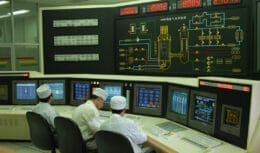
The study, which plans to limit the participation of the state-owned company to 50% of gas sales in the country, suggests the sale of gas pipelines, assignment of supply contracts to private companies and the creation of the free gas consumer.
The study on which the proposal to eliminate Petrobras' monopoly in the gas sector is based foresees potential investments of US$ 60 billion (around R$ 240 billion at the current dollar exchange rate), if the goal of reducing the price of gas is achieved. fuel in the country. According to the projection, the resources would be disbursed by investors over the four years following the break of Petrobras' monopoly in refining and would cover the expansion of the supply infrastructure and industrial capacity of sectors that would grow with the fall in gas prices.
In four years, the supply of natural gas in Brazil will increase from the current 60 million m³/day to 160 million m³/day. But the extra fuel provided by pre-salt reserves can be wasted if there is no demand. Petrobras, which always controlled the chain (exploration, treatment and distribution) and dictated investments in the sector, had plans for surplus gas. The state-owned company built fertilizer factories and LNG (Liquefied Natural Gas) terminals that could be used for export.
However, corruption scandals and the financial crisis forced the company to announce a US$ 21 billion divestment plan, putting almost all assets in the area up for sale.. As in most reserves, gas is associated with oil, not having a destination for it means putting a brake on oil exploration, therefore, an option that was never on the table.
According to the government, the tendency is for fuel prices to fall without the monopoly on refining. Reducing the price of gas is one of the priorities of the economic team, which expects the measures to be implemented within 60 days. The goal is to reduce the price of gas from the current US$ 12 (R$ 48) per million BTU (measurement of calorific power) to between US$ 5 and US$ 6 (from R$ 20 to R$ 24), varying according to the distance between the site and the coast.
“The price charged to the final consumer, as a result of the lack of structure in the sector, the inefficiencies generated by regulation and the behavior of the dominant agents in the areas of production, transport and distribution, is one of the highest in the world”, highlights the study.
If achieved, the tariff reduction should trigger a new wave of investments in the steel, petrochemical, ceramics and fertilizer sectors. According to a study by the Association of Large Industrial Energy Consumers and Free Consumers (ABRACE), the reduction of each R$1/MWh in the cost of energy represents an increase in national wealth of R$4 billion in 10 years. “Competitive gas and electricity prices can add 1% annual growth to the Brazilian GDP and 12 million jobs in the same period”, says Paulo Pedrosa, former secretary of the Ministry of Mines and Energy and president of the entity that brings together more than 50 companies responsible for 42% of industrial consumption of natural gas. “The impact on the trade balance will be big.”
The expectation is that the oil and gas sector may have investments of US$ 10 billion (R$ 40 billion) for the construction of four new maritime gas pipelines, four gas treatment units and expansion of fuel transport capacity on the continent.
Iron and aluminum mining could attract another US$ 19 billion (R$ 75 billion) for the installation of ten iron ore processing plants and two aluminum processing plants, a segment that 'fled' from Brazil due to the high prices of local energy.
Petrobras completes the sale of the Pasadema refinery for less than half the price









Air Force F-16 fighters…
True friend, what they shot down were…
Air Force F-16 fighters…
Well... It's flying scrap... Typical...
Air Force F-16 fighters…
I would like to know what planet you live on…
They discover the third largest deposit…
That’s why all foreigners and NGOs…
Air Force F-16 fighters…
Which genocide are you talking about? Than…
The article didn't exactly explain the principle......
Do you speak any of the current languages of…
Several points to be analyzed: Matters…
I have one, the one on the road and one…
You must start thinking about Putin or…
Lol hamasete lol
I agree with you and much more, the…
He likes talking about his ass so much that…